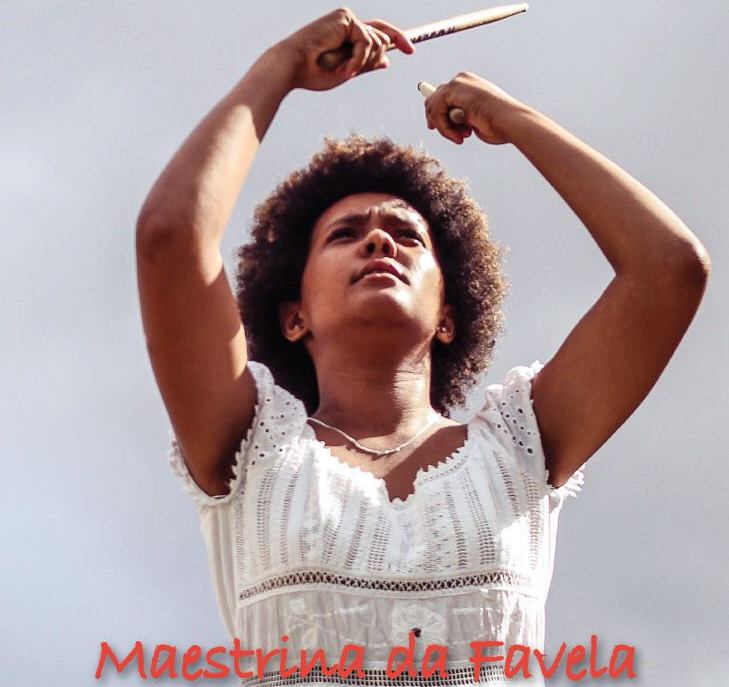[ad_1]
By Nyame-kye Kondo, Special to the AFRO
District of Columbia native Falani Afrika is currently in the post production phase of a documentary project she has been developing locally and abroad for the last 10 years. Filmed entirely in Brazil, Afrika’s film “Maestrina Da Favela” follows the life and career of Elem De Jesus Silva, a Samba Reggae Maestrina, from Salvador, Bahia, Brazil who created her own youth band while still an adolescent herself. Exploring a number of different themes, Afrika’s film is rooted in the perseverance of Black women, and the act of using art as a source of being the answers to problems, especially through the utilization of the arts.
“It’s been a life changing journey,” D.C. native Afrika told the AFRO. “I met Elem when she was young, and with the support of her late mother, Nilzete Silver, have been able to document her journey and her successes.”

Recently showing her film at the Black Supremacy film festival in Baltimore, Afrika’s current intention is to continue gaining support film’s protagonist, who is currently in the midst of a medical crisis.
“Currently we are trying to help Elem get the medical help that she needs, because the story, though wonderful, would be nothing without her, and we want to try our best to support her in every way possible.”
Perhaps the youngest maestrina or master percussionist, in the history of the art form, Silva taught herself how to play the drums, and with the support of her mother, formed her own band. Providing a positive outlet where there was none, Silva’s humble beginnings did not stop her from setting her sights on a bigger goal.
“I was eight years old when I started playing with cans, bottles and buckets” said Silva in the more than hour long film. With the development of Samba Reggae being akin to other diasporic musical traditions throughout the world, like GoGo, and Grassroots reggae, Samba Reggae is a music form that grew out of
Considered to be revolutionary in nature because of its development and purpose, Samba Reggae is a music genre that was created in Salvador, Bahia by Afro-Brazilians during the 1970s and 80s as an extension of the Black Pride movement. “Through a mixture of Jamaican reggae and Brazilian samba, samba-reggae was born” reported Batalawashington.com.
Right at the intersection of Brazilian culture, Samba Reggae displays both the retention of African culture in Brazil, as well as the acculturation that had to happen for them to survive in such a harsh societal climate. The polyrythms and distinctive West African syncopation speaks directly to the remnants of Africa that were not lost during the slave trade.
Globally considered a male dominated art form, because of the supposed masculinity it denotes, female Maestrina’s are not a common occurrence. Which is why Elem Silva, is such a unique figure in the art forms pantheon, not only because of her talent, but because of her educational leadership.
Recognizing the art form as a peaceful outlet for the youth in her community, the legacy of Samba Reggae is not unlike the early beginnings of many Go-Go bands in the D.M.V area. Starting out much the same, beating on buckets and cans throughout the city, Go-Go provided D.M.V youth with an artistic outlet and helped to keep them off the streets as well.
With Samba Reggae being centered around Afro-polyrhythms, Afrika recognized the likeness and wanted to shine light on the connection to African ancestry. “It really all comes back to the drum. All throughout the world diasporans use the drum in different ways to convey their Blackness, and to hold onto their culture. Brazil is no different, and that is what we are trying to convey in this documentary. The importance of women breaking down these barriers, but also the universal resilience of African people.”
Afrika’s film has not made its widespread debut yet, but financial donations to its heroins medical expenses, and social media fellowship are most welcome. You can watch the trailer for the film and lend your support by following @maestrinadafavela on all social media platforms, and by visiting its website at MaestrinadaFavela.com
[ad_2]
Source link


